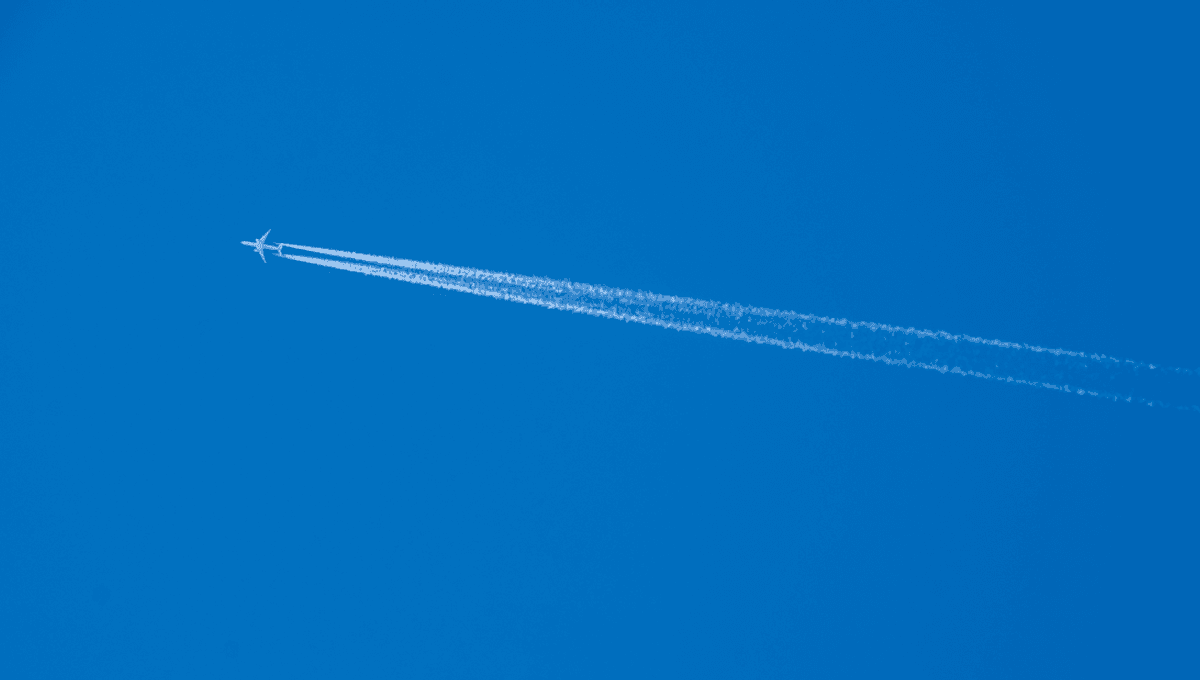
Many of us like to jet off on holiday around this time of year, leaving in our plane’s wake a curious white trail. We’ve all seen them, but what are they?
The white trails planes leave behind are called contrails, and they’re effectively artificial clouds produced by the water vapor released by aircraft engines. One more cloud in the sky might not seem all that bad, but new research has shown that contrails are changing with the development of modern aircraft, and it might not be doing our climate any favors.
What are the white trails planes leave behind?
Contrails are the white lines we see in the sky trailing behind planes, hence the name (con = condensation, trail = trail). They are the result of the way a jet engine works, as it burns fuel and creates water vapor as a by-product of combustion, and you know what else is made of water vapor? Clouds.
This is why contrails look so much like clouds, because they effectively are. They’re most comparable to cirrus clouds, and it’s here that contrails can have downsides for the planet below.
Contrails’ impact on the climate
Science has no beef with naturally occurring clouds but it’s been noted that cirrus clouds do have an influence on the planet. This is because they can trap heat coming from the planet below, and the same is true of the artificially created contrail variety, adding to the downsides of air travel.
“It’s common knowledge that flying is not good for the climate,” said the lead author of a new study, Dr Edward Gryspeerdt, who is a Royal Society University Research Fellow at the Grantham Institute, in a statement. “However, most people do not appreciate that contrails and jet fuel carbon emissions cause a double whammy warming of the climate.”
Gryspeerdt’s team established that contrails are lasting longer than ever before because planes have started flying at a higher altitude. Planes’ graduation up to heights of 12 kilometers (38,000 feet) was a smart move to experience less drag, meaning they generated fewer emissions. However, it comes with the side effect of contrails that take longer to dissipate.
“This study throws a spanner in the works for the aviation industry,” continued Gryspeerdt. “Newer aircraft are flying higher and higher in the atmosphere to increase fuel efficiency and reduce carbon emissions. The unintended consequence of this is that these aircraft flying over the North Atlantic are now creating more, longer-lived, contrails, trapping additional heat in the atmosphere and increasing the climate impact of aviation.”
“This doesn’t mean that more efficient aircraft are a bad thing – far from it, as they have lower carbon emissions per passenger-mile. However, our finding reflects the challenges the aviation industry faces when reducing its climate impact.”
Are contrails chemtrails?
No.
A study of scientists in the most relevant fields found even less support for that conspiracy theory than exists for climate change denial. Unfortunately, it seems even that wasn’t enough to get people to stop talking about it. So, if you need more convincing, click here.
Source Link: What Are The White Trails Planes Leave Behind? The Damning Science Of Contrails